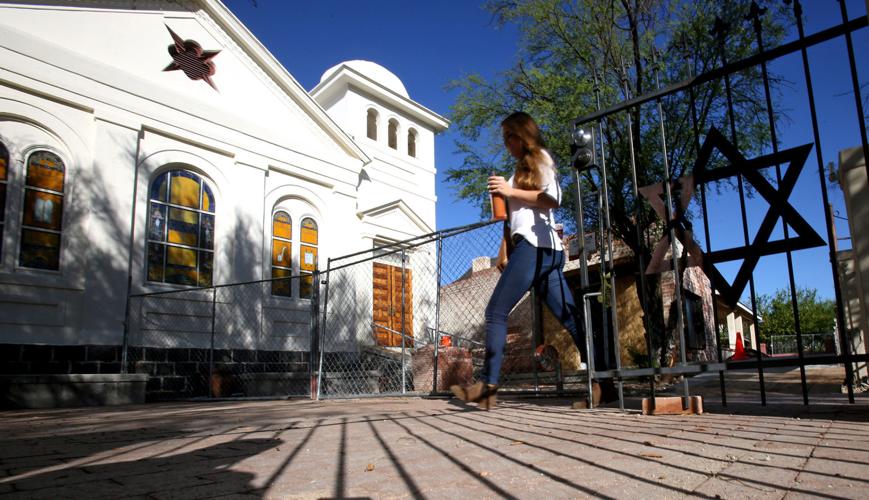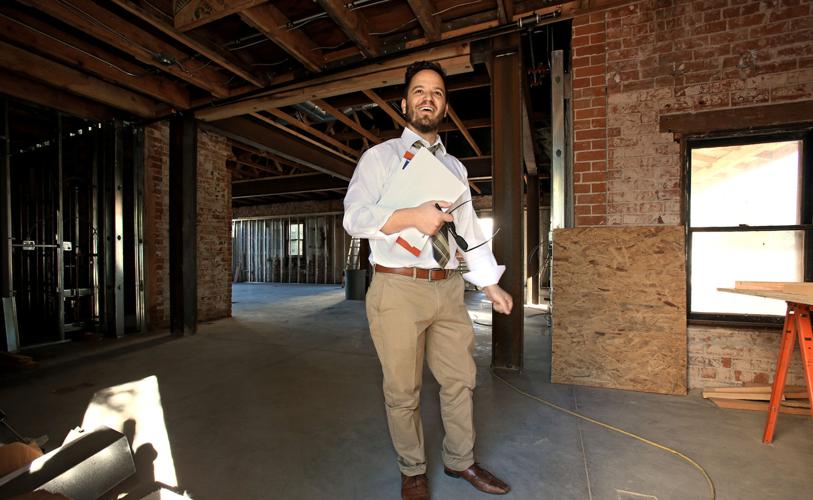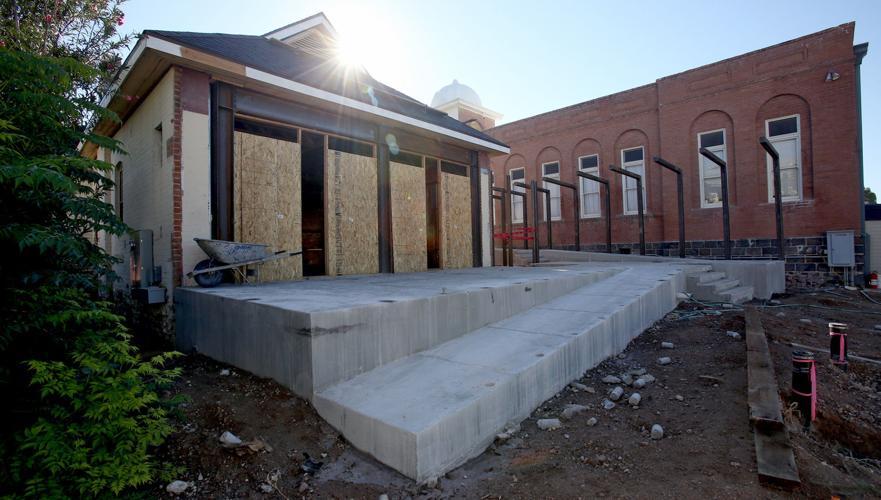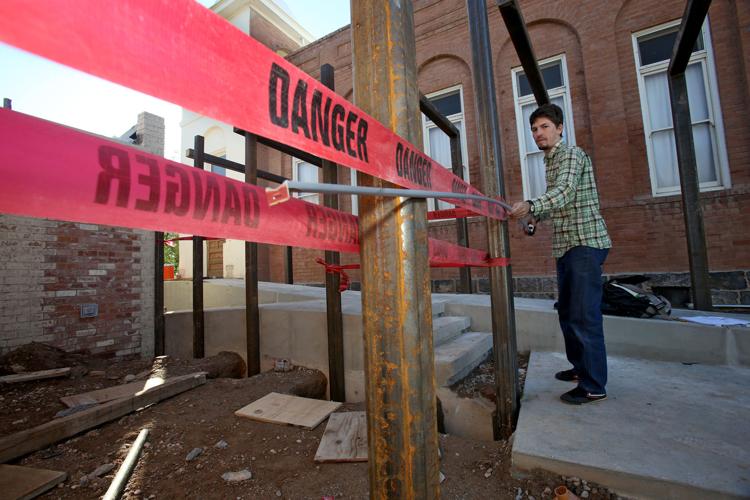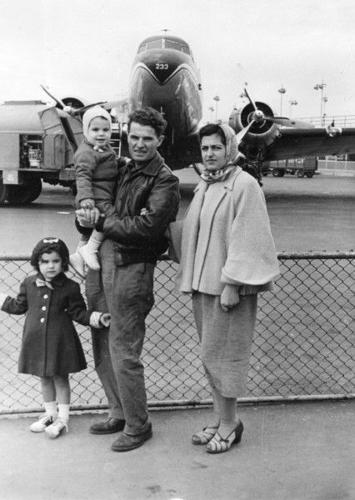It was 1956 when Meyer and Susan Neuman, and their two children, Rosie and Phillip, arrived at the Tucson airport. Meyer and Susan were Holocaust survivors, two of the first to come to Southern Arizona.
The couple, who passed away five years ago within five months of each other, was part of a group of more than 250 Holocaust survivors who made Tucson and Southern Arizona their home.
To recognize their stories and those of others who fled genocide and political persecution, the Jewish History Museum is expanding its South Stone Avenue campus to add the Holocaust History Center. A 2,000-square-foot building is under construction and will include an outdoor plaza and sculpture garden.
It’s an idea that had been contemplated since the 1960s, said Bryan Davis, interim executive director of the Jewish History Museum, parent organization of the Holocaust History Center.
Holocaust survivors are dying and their stories must be preserved for others to learn from, Davis said.
The new space will not be devoted exclusively to memorabilia or focused on Jews as victims. Rather, it will be used to hold exhibitions and lectures that teach about anti-semitism, genocide and human rights — issues and crises that continue to damage countries and destroy communities.
“We want it to be a cultural institution in the city and part of the school curriculum,” Davis said.
The new center, which was once a beauty salon and part of the Carrillo family territorial home, is expected to open early next year. Already, 2,000 Tucson school children and a total of 5,000 people visited the initial version of the Holocaust History Center.
From October 2013 to April, the nascent center received visitors in a 400-square-foot space. Davis said the success of the pilot program convinced the museum’s patrons that a larger facility south of downtown would attract people to the campus, which sits near the Prince Chapel African Methodist Episcopal Church and across the street from the former Mexican Consulate.
Rosie Eilat-Kahn was almost 5 when she arrived with her parents in Tucson from Cleveland, Ohio, where she and her younger brother were born. Her parents met in Sweden after surviving the Nazi concentration camps.
She said the Holocaust History Center will honor those who survived the genocide and made their homes in Southern Arizona to raise their families. But the value goes further. She sees the center as an educational tool to teach about the Holocaust and show what humans can do to others if tolerance and caring are not part of the civil conversation.
The Holocaust History Center is a joint project with the Jewish History Museum, housed in the 1910 Stone Avenue Temple, the first in Arizona and dating back to when it was still a territory. The two museums will complement each other, said Barry Friedman, president of the Jewish History Museum board of directors.
The two venues will bookend the history of the Jewish presence in Southern Arizona, he said. Jews arrived soon after the Gadsen Purchase in 1854, settling in Tucson, Nogales and Bisbee, and their history is reflected in the older museum.
The Holocaust History Center “closes the circle, it plugs missing pieces of Tucson’s history,” Friedman said. “We need to keep history alive.”
In addition to dedicating space to the genocide of European Jews and others during World War II, the center will reflect the nightmares of recent — and current — genocide and persecution, from Rwanda, to Syria and Iraq, to Central America.
“It’s going on everywhere in the world,” Friedman said.
Even the location of the campus, on the edge of Barrio Viejo, is connected to the diaspora of people from another time and place. One hundred years ago, the old barrio began to swell with Mexican families who fled the terrors of the Mexican Revolution.
Davis hopes the new center will cultivate empathy and compassion for refugees, and demonstrate a history of persistence and contributions of those who flee and find refuge in safe harbor.
“We hope to change people’s way of thinking,” he said.


